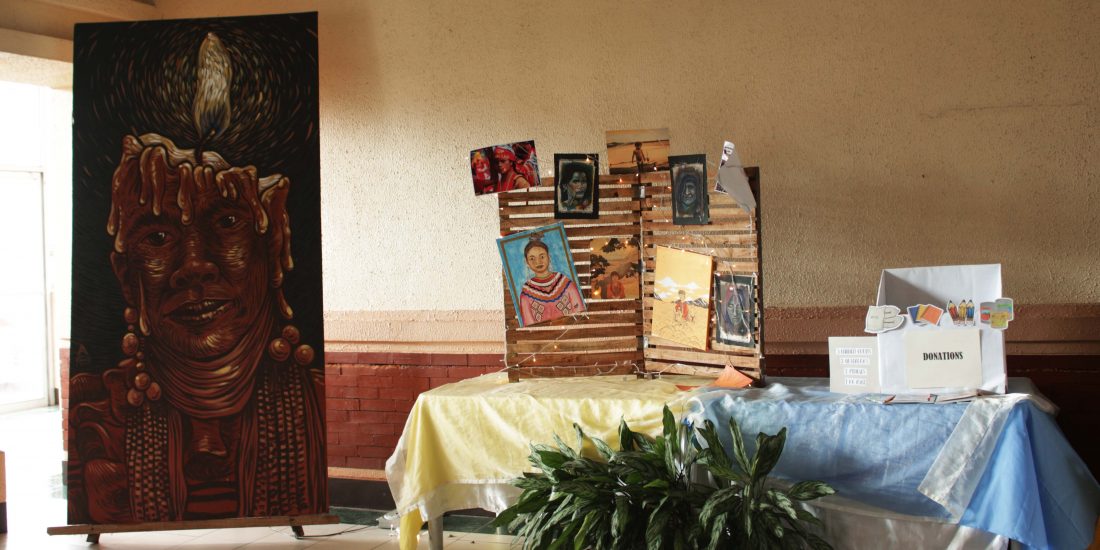Will To Live seminar brings the fight against Lumad killings to Cavite
“The solution will be slow,” DLSU-D Social Science department professor Dr. Luis Buenavantura says. “But I’ll tell it to you straight—education.” That, for him, is the answer to how people can help the exploited ethnic groups in Mindanao. The Will To Live seminar held last April 26 at Bulwagang Jose Basa was a good start; and for what it’s worth, it was a worthy initiative to recognize the struggles of the Lumads in Mindanao.
Along with him, the Pre-Law Society also invited Kerlan Fanagel of the Save Our Schools Network to talk at the two-hour seminar about the indigenous peoples in the Philippines. He is a wandering fighter and a Lumad himself who went to Luzon to share the interminable horrors of his home of Mindanao, which are worsening under the Duterte administration. He traveled the distance, islands away from the actual bombings plaguing his community, to be a living testimony of the issue.
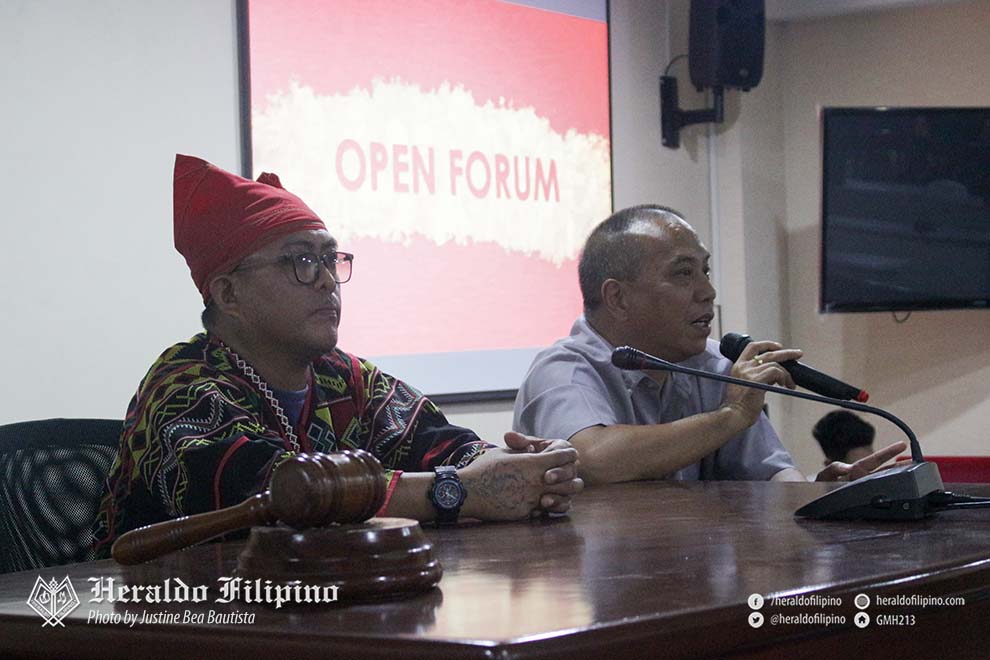
“Ang lupa ay buhay”
As the first speaker Fanagel puts it, Lumad is a Cebuano term for the word katutubo or indigenous. Lumads in Mindanao have 18 ethnicities such as Blaan, Tboli, and the mother of all tribes, Manobo, who have maintained their own traditions as anti-colonial forces in history.
He then discussed the ancestral domains or “mga lupa ng mga ninuno” which various entities forcibly claim as their own. These ancestral lands do not have private ownership as their culture states that a particular area belongs to whoever tills the soil at the time being.
However, ancestral domains aren’t only limited to lands. “Ang mga lupang ninuno ay hindi lamang mga lupa kundi pati na rin ang mga kalawakan, pamumuhay, at kaila-ilaliman. Ito ang kanilang buhay. Ang lupa ay buhay.”
For the communities whose blood run with the rhythm of nature, their land is a treasure that cannot be taken away. “Sa kasaysayan, patuloy na lumalaban ang mga katutubo,” Fanagel tells.
Despite all the struggles that generations have experienced, from fights for justice down to the basic social services that fail to reach the communities of the indigenous, they still remain positive. Fanagel recalls a story of a missionary about the purity of hearts of the Lumads when it comes to fellowship: One time, a nun gave a child a piece of candy. She told the child to keep it secret as she didn’t have candies left to give all the other children. The child who had been blessed the rare sweet could’ve easily kept it and enjoyed its heavenly goodness for his own. But he didn’t. He called all the other children around, crushed the candy, and had each one have a taste of the sweet powder. Those children knew not just the value of giving, but also the spirit of equality.
These children are essentially the same ones who grew up in a place of war—systematic wars in Mindanao, as told by Fanagel, currently has 75% of the Armed Forces of the Philippines deployed in the name of the Martial Law. In line with this, intensified killings of community leaders have been recorded, counting to 126 political killings as of February this year.
Fanagel went on with his presentation to show statistical figures of killings that occurred in Mindanao. The numbers are indeed harrowing, but it was the pain of hearing their experiences that made it seem all too real.
That, and many other reasons, is why Save Our Schools Network in cooperation with Barug Katungod Mindanao, an alliance of Lumads, continue to voice out these stories nationally. Tribal leaders like Fanagel are currently travelling in Manila to spread awareness about the situation in Mindanao; and they will stay in Luzon until the Martial Law in Mindanao ends.
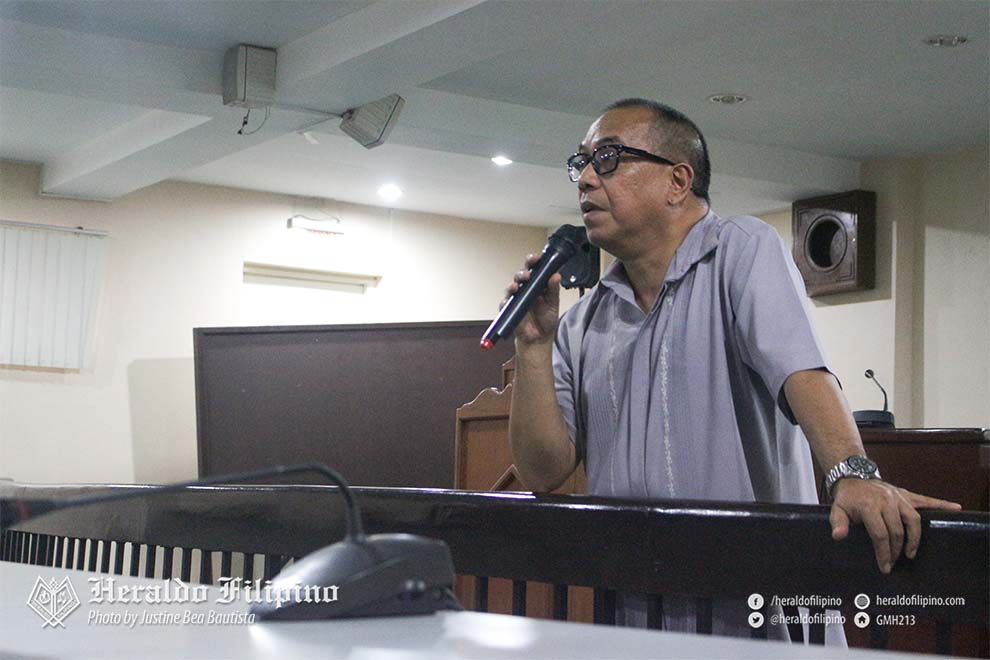
“Paglibing sa kahirapan ng mga katutubo”
Fanagel furthered that even though they are not in Mindanao, the terror still joins them wherever they go. “Ang pagsubok ay hindi lamang nasa Mindanao,” he shares. Considering the unequal treatment and the nationwide effects of the current administration to the marginalized, he arrives in total conviction that this fight is for all Filipinos.
This is also the belief the second speaker shares. “Hindi ako katutubo, pero I am one of them with the struggles,” Dr. Buenavantura starts. He delightfully shared his experience during the 1990s living with the tribes—about his immersions that brought lessons to his life, like the knowledge which the indigenous did not learn from books but know by heart (“farming, colors, looking at the sun”). He went on to say that though he is a doctor, none of the books he scoured could teach him what he learned with the indigenous peoples of the Philippines, who he described as people “we should take care of.”
He then discussed more technically, revealing contextualized struggles of the people in Mindanao—the “real score” as he calls it. These scores are of harrowing harassments: land-grabbing from private illegal loggers and mining companies in connivance with Local Government officials, classification as sympathizers of the NPA, MNLF, and MILF, and tagging as “marginalized” even by their respective governments.
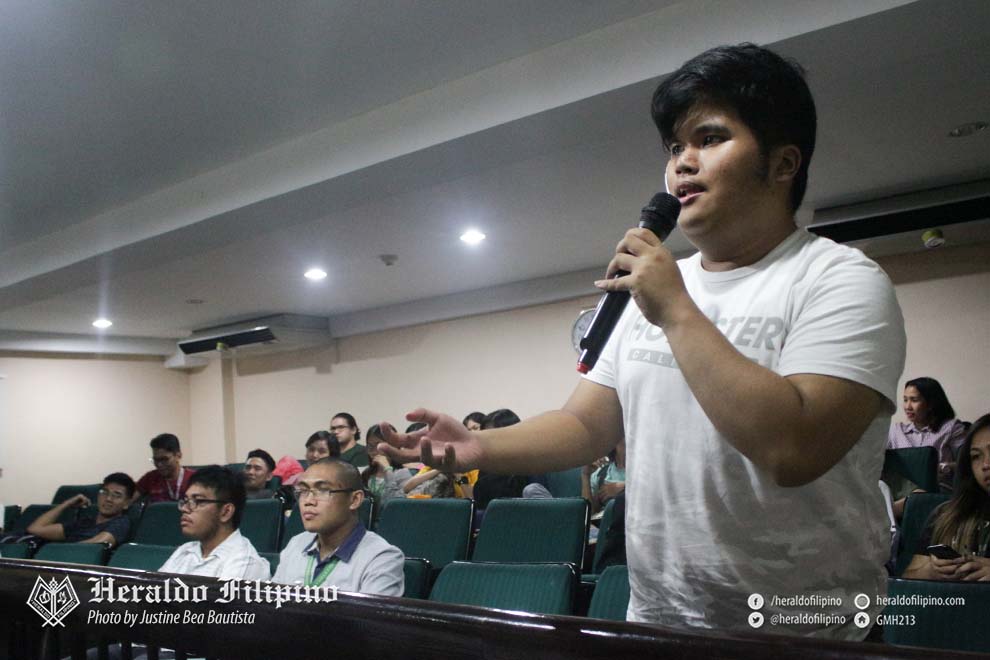
“Laban ito ng lahat ng Pilipino”
Social prejudice is hard to combat and the hard-wired dilemmas that tangle peace are hard to understand to begin with. The bottom line is that human rights violations have become rife in the distance from our comforts in Luzon. Now, what we can clearly see through this is the basic humanity we should consider. All lives matter.
Dr. Buenavantura himself was part of the formulation of the Republic Act No. 8371 or the Indigenous People’s Rights Act. He was merely an observer but deeply an advocate, he shares.
“Education through exposure is important,” he tells the DLSU-D community. According to him, other ways we can recognize them is by appreciating ethnic music and lowland dances. He even urges the students to watch the Filipino Channel.
“We don’t expect instant results,” he concludes, “but we expect people to be more educated.”
The start to being educated is exactly what the Pre-Law Society purposely initiated, as according to project head John Aries Loayon, “Gusto naming mabuhay ulit ‘yung kalinga sa kanila—kung ano ba talaga ‘yung gusto nila, ‘yung mga nangyayari sa kanilang pang-aabuso, ‘yung ancestral domains nila—para ma-address sa ating mga taga-Luzon kung ano ‘yung dapat nating gawin at dapat natin silang maunawaan dahil pare-parehas tayong mga Pilipino.”
“Kaya namin itong tinawag na Will To Live dahil ito ‘yung chance na maipakita na may chance pa at pag-asa pa. Naniniwala kami na itong event na ‘to, makakapagdugtong ng buhay sa kanila at sa hinaharap ng kanilang kultura at tribo.”
Fanagel expressed he appreciates the pure intentions of the seminar.
“Sa nangyayaring Martial Law sa Mindanao, ‘will to live’ para ‘yang will to survive. Kailangan mong mabuhay—mawalan ka ng lupa, mawalan ka ng buhay, mawalan ka ng karapatan.
“Bilang Lumad, ang karanasan namin nawa bilang Pilipino ay pag-aralan. Kailangan nating makialam sa kung ano ‘yung tunay na mga nangyayari sa Martial Law ngayon. Hindi lamang ito problema ng mga taga-Mindanao, buong bansa ang all-out war. Buong bansa ang human rights violations,” he concludes.
“Ang laban namin at ang pakikibaka namin para sa pag-depensa ng mga mga lupang ninuno—ito ay laban din ng mga Pilipino dahil laban ito para sa patrimonya ng ating bansa.”
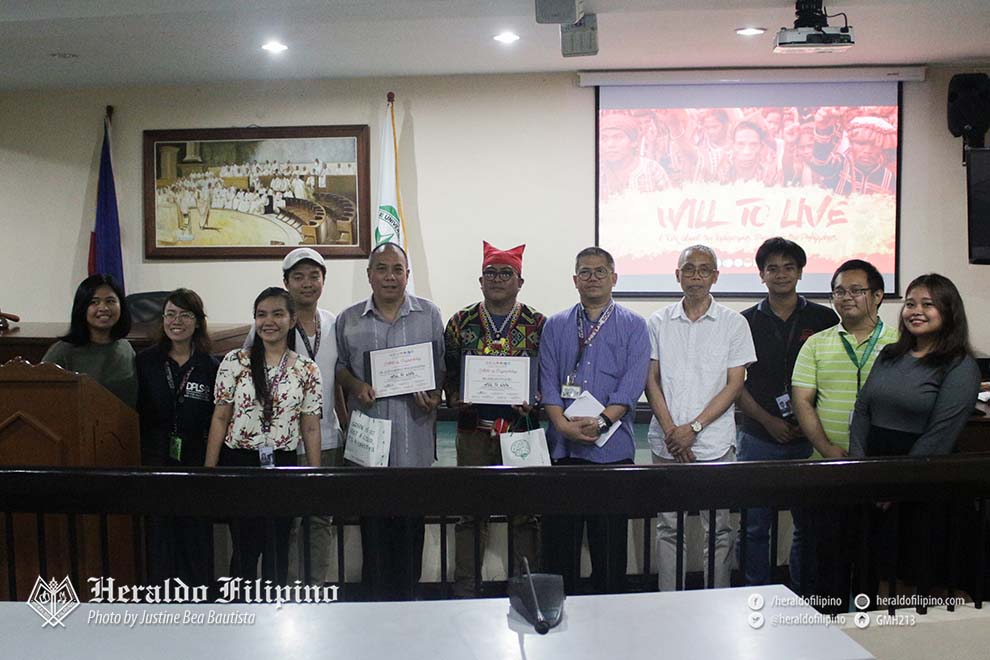
Get to know Save Our Schools network here. “Persolitika: mga tula at larawan ni Raymund B. Villanueva” and Lumad coloring books are available for shipping nationwide. Proceeds will fund the building of schools for Lumads.



